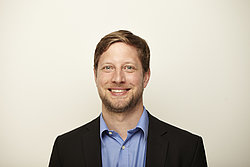Studying at Karlshochschule is characterized by constructivism
Studying at Karlshochschule is characterized by constructivism. We believe that knowledge is best acquired and deepened when it can literally be lived and experienced, e.g. through business games, current case studies, blended learning, excursions or practical presentations by exciting speakers from the worlds of business, culture or politics. Lectures are not about “reading out” but about teaching. The knowledge imparted is primarily an orientation knowledge that is expanded and developed through the students’ own activities.
Teaching and atmosphere at Karlshochschule
The six semesters of a Bachelor’s degree course at the Karls can be divided into three levels, each of which represents a personal development step:
1. instruction
At the very beginning there is the orientation in a completely new environment for most students – i.e. the still unfamiliar life and work at a university. This is the level of instruction at which students learn to act confidently in an unfamiliar environment, incorporate new roles into their repertoire, and define and pursue goals.
2. construction
In the second year, the main focus is on the application (construction) of what has been learned. The focus here is on dealing creatively and constructively with the knowledge acquired and understanding one’s own personality. This means that students bear full responsibility for the success of the teamwork during the project phases and prove themselves in the role of the doer. During their stay abroad, they question and reconstruct their role in unfamiliar territory and gain confidence and openness. When they return to Germany, they experience a new moment of amazement when their familiar surroundings suddenly appear in a completely new light and things that were once taken for granted no longer seem at all obvious.
3. reflection
Towards the end of the course, the focus shifts to reflection. This is where all the experience, knowledge and skills acquired during your studies can be put to good use. The students have learned to endure uncertainty, to move confidently in foreign cultures and to communicate their goals and visions clearly. However, it soon becomes clear that the learning has only just begun.

At Karlshochschule I was able to experience that the open and communicative teaching concept particularly encourages students’ interest and willingness to discuss. They take a critical look at the course content and the current cultural market and are thus ideally equipped for the major challenges facing the future managers of art and culture.
Tillman Wiegand, Artistic Director RuhrTriennale Festival of Arts
